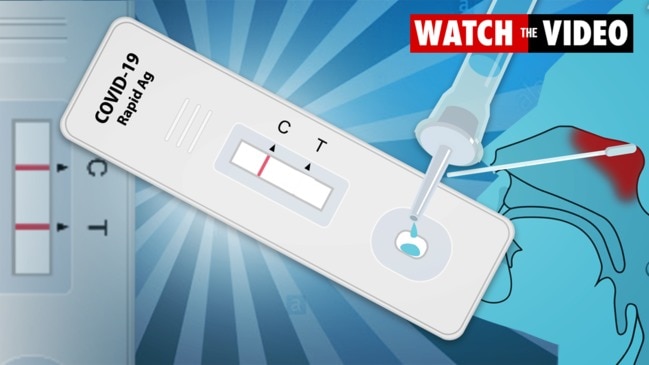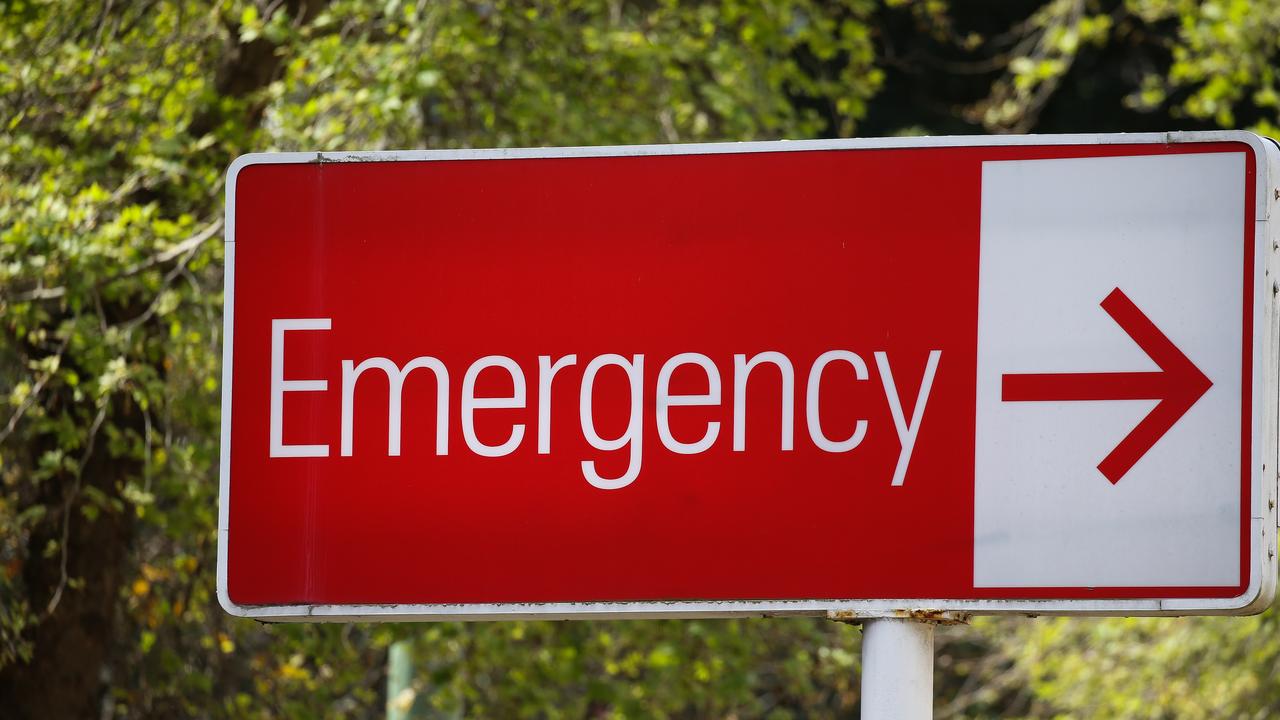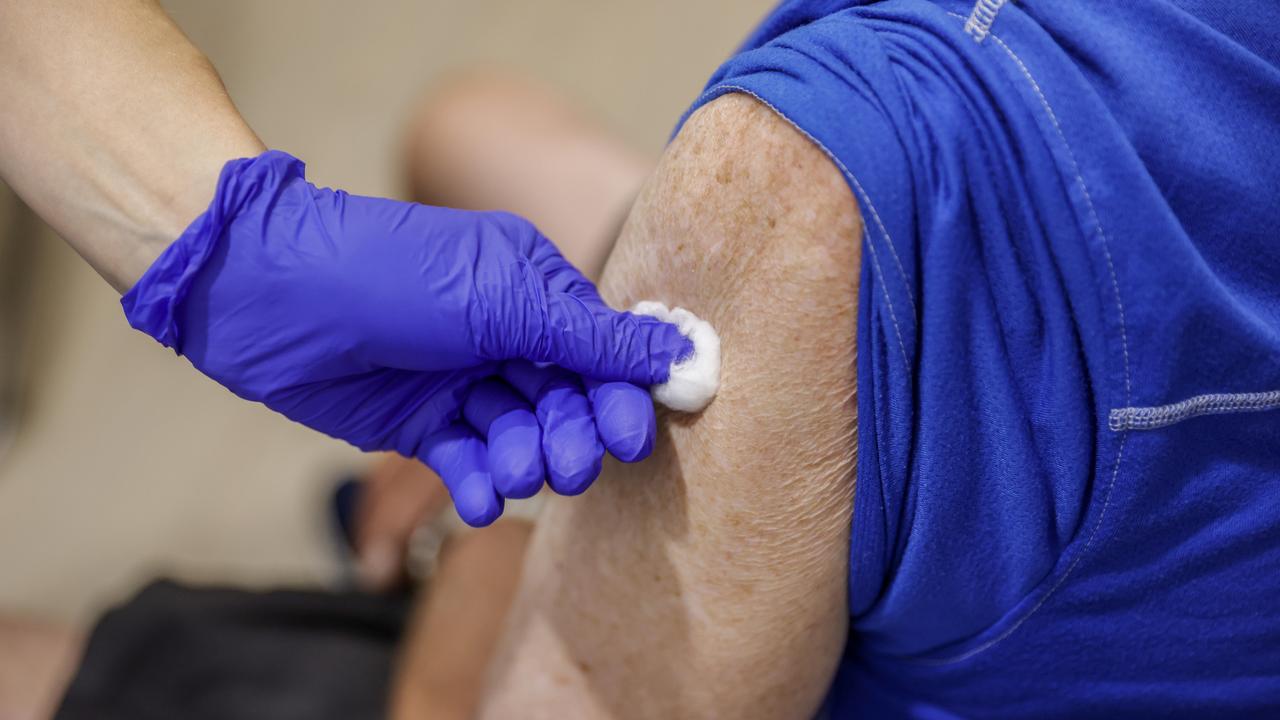Epidemiologist answers the Omicron questions everyone wants to know
From how easy it is to catch Covid to whether you should just “accept” you’ll get it, an epidemiologist has answered all your Omicron questions.

A leading epidemiologist has revealed just how easy it is to catch Covid-19.
As cases surge across the country, University of Sydney Professor Alexandra Martiniuk told the I’ve Got News For You podcast that Omicron is “unbelievably more transmissible or infectious compared to other variants like Delta and the ones that came before it”.
“Some people can catch Omicron perhaps walking past someone, or stepping into an elevator after the infectious person is no longer in the elevator,” she said.
“There’s also data out of Hong Kong that shows that when two people open doors into the same hallway, they might catch Omicron from someone who might be a neighbour or in a hotel, even though their door might be shut. And that’s because Omicron and all variants of Covid are airborne – and that means they can hang in the air like cigarette smoke can.”
But, it’s not always consistent, Prof Martiniuk explained, meaning someone in your household can test positive but you may never contract it from them.
Should I just accept that I’m going to catch the virus?
Just because everybody might eventually catch Covid-19, Prof Martiniuk said, doesn’t mean they should all at the same time.
“The hospital doesn’t have room for all the people who would need it at the same time, our GPs don’t have space, we don’t have supplies,” she explained.
“And also, even if we just all got sick and it wasn’t that serious, the number of people who would need to quarantine makes the society grind to a halt in terms of lack of truck drivers, lack of people to stock the shelves at the grocery store.”
The best thing you can do, she said, is to try and stave off the virus for as long as you can, “because the longer you delay getting Covid, whether it’s going to be later this year or next year into the future, the better your outcomes will be, and the better society can support you with that”.
This outlook is also important because, unlike chickenpox, for example, you can catch Covid-19 more than once.
“And you can get it soon after [your first infection] as well. So there’s no advantage to getting it, you only just have a period of sickness, potentially infect others, and potentially put a load on the system,” Prof Martiniuk said.
“So delay, or don’t get it all.”
How can I best protect myself?
The good thing about Covid-19 is that the best ways to protect yourself are always the same, no matter the variant.
“The top thing is vaccination – get vaccinated, get on to get your booster when you’re ready. Teenagers should be vaccinated, and now the five- to 11-year-olds need to be vaccinated,” Prof Martiniuk said, adding you can contact your GP or the national hotline if you’re unsure about getting the jab.
“The other thing is, because we know that Covid is an airborne disease, paying attention to ventilation, and under ventilation is sort of a group of things, including wearing a good quality mask.
“So whether that‘s, you know, at the lowest level of quality or it might be sort of a surgical or hospital kind of mask, but wearing it well on your nose and your mouth.
“And try not to be indoors very much when there’s a shared setting – so reducing your number of times you grocery shop, for instance, and the number of people who have to go to the grocery store.”
Washing your hands continues to be important, Prof Martiniuk said, as does, for people with severe underlying chronic conditions, keeping those under control.
“And obviously, you know, if somebody you know has Covid-19, get tested to better understand your own status,” she added.
Which items should I stock up on to be best prepared for if I get Covid-19?
Having a Covid-19 plan in place at your house, Prof Martiniuk advised, is one of the best ways you can prepare in the event you catch the virus.
“If you think about, well, you’re going to probably be inside your house for at least seven days, and you might be feeling a bit crook or sick. Think about, well, what would I want? If I was lying in bed with a fever, or my kids were vomiting several times a day with a fever?” she said.
As for what you should have a hand, she suggested:
- Rapid antigen tests, if you can find them
- Panadol and/or Nurofen, for all age groups
- Rehydration products like Hydrolyzed, icy poles or Gatorade
- Food that won’t perish – a loaf of bread in the freezer, long-life milk, staples like rice
- Activities for your kids, like movies, books or puzzles
- At least a month’s worth of your typical medications
- A mask, to protect yourself against the virus if only one person in your household has it
- A thermometer
- An oximeter, if you can afford one
If I think I have it, but a RAT test says I’m negative, what should I do?
There are a number of reasons this could be happening to you.
“Number one, is they’ve done the test wrong, or it’s not as good as it could be. So people are saying, you get a much better result and more accurate if you swab the throat, and the nose,” Prof Martiniuk said.
“Doing more than one test increases the accuracy of RATs. So you could do those two in one day, one in he morning, one at night, or one one morning, one the next. So that increase the chances of picking up a true positive if it’s there.
“Other reasons that a RAT might be negative is obviously, one, you truly don’t have Covid. Or, it could be too early in the infection as well … And that’s why people suggest to do RATs multiple days in a row, particularly if you’re having symptoms, and you’ve been in close contact with somebody with Covid.”
If you’re really unsure, she suggested seeking out a PCR test.
If I have a positive RAT test, do I still need to get a PCR?
No, you don’t. But it is now mandatory in most states to report your positive RAT result to the government.
And, of course, you need to isolate for seven days (or, if you’re in South Australia, 10 days).
When should I seek help for my Covid-19 symptoms?
“Around 98 to 99 per cent of people who are double vaccinated, and particularly boosted, will have an extremely mild condition, very mild illness, meaning it will feel like often to most people a common cold, stuffy nose, sort throat,” Prof Martiniuk said.
Around 20 to 30 per cent of people are estimated to be completely asymptomatic.
But, you should seek out advice from your GP if you’re either someone with “very severe underlying conditions” or you’re “just a regular everyday person, and you’re getting worsening symptoms”.
“So if you’re finding yourself breathless, you’ve had a fever for multiple days or you’ve had a fever but it’s very high and Panadol or Nurofen aren’t helping, or you’re just concerned, you should seek assistance of your GP, and you can do that by telephone,” she advised.
“And then there’s the severe cases where they might need an emergency department … But please, anyone who’s very concerned about their condition, the condition of an elder who they’re caring for or a child, they should seek emergency department care.”

Signs you could need to head to a hospital, Prof Martiniuk said, include confusion, if the person looks blue, extremely pale or “mottled”, if they’ve fainted, or if they’re so drowsy “you can hardly wake them”.
Severe chest pain – not just from coughing – and trouble breathing are also reasons to seek help, as is producing very little urine.
Is seven days of isolation enough?
“We’ve always known that Covid-19 can be infectious anywhere in the range of about one to 14 days. And we’ve got some Asian countries who actually use 21 days. So there is a range, but the majority of people will be infectious within the days of one to seven,” Prof Martiniuk explained.
“So I personally think it’s wise, if you don’t have to seem them, you know, why not put it off for another week, just in case they’re infectious.”
If you can take a RAT and it presents as negative, that can also be helpful before you leave isolation.
How long am I immune from catching Covid again?
While Omicron hasn’t been around long enough to determine a solid answer, most countries, including Australia, estimates you’ll be immune from catching Covid-19 a second time between six to eight weeks after your initial infection.
You can also catch other strains, Prof Martiniuk said.
“There’s still some Delta circulating in Australia, it’s not thought to be much, but we don’t actually know how much. So you could catch Delta, you could potentially catch Omicron, again, after about eight weeks,” she explained.

The best thing you can do is to carry on protecting yourself like you did before you ever caught the virus, and get your booster (if you haven’t already) when you can.
How long will the booster protect me for?
“Boosters, they’re quite new around the world, obviously … and we’ll start to get a lot more information about how well boosters protect us, and how often we need to get re-boosted, and whether the boosters are going to need to be tailored to the variants,” Prof Martiniuk explained.
A recent study from the UK with 900,000 participants showed that the booster “holds up quite well at about 10 weeks after” against Omicron, “but then can rain down to about 50 per cent infection”.
“[When we talk about vaccines being] effective after 10 weeks, we typically are talking about having any symptoms,” she said.
You can here Professor Martiniuk’s full interview on the I’ve Got News For You podcast







